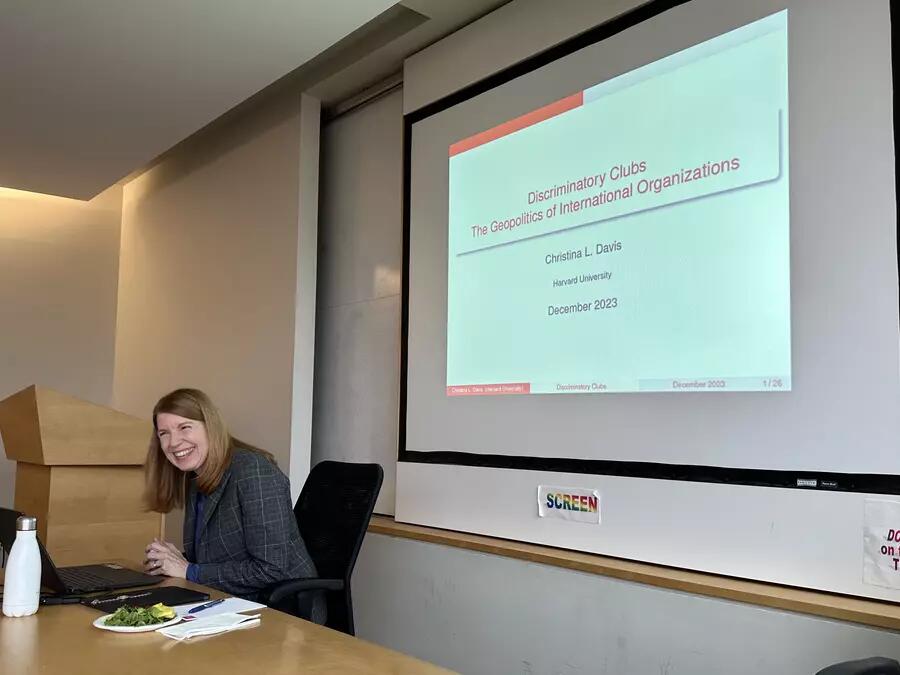
Event Report: Discriminatory Clubs: The Geopolitics of International Organizations
On December 1st, 2023, the Centre for the Global Study of Japan hosted Professor Christina Davis, Edwin O. Reischauer Professor of Japanese Politics at Harvard University, for a presentation drawing on her recent book, Discriminatory Clubs: The Geopolitics of International Organizations, published from Princeton University Press. The book presents a new theory of how states become members of international organizations, focusing on geopolitical alignment rather than conventional explanations based on economic benefits and other functional rationales.
Professor Davis began by emphasizing the importance of international organizations in the current world order, focusing on three aspects: credible commitment to economic and political reforms, seals of approval for reputation and status, and membership, which has benefits such as increasing trade and reducing conflict. She then explained her model of international organizations as discriminatory clubs. She described several advantages of this club model, such as facilitating security linkages, providing political cover to launder influence, and granting power for members to screen future entrants. She progressed by analysing the four types of IGO’s accession processes: hierarchical, meritocratic, universal and club.
Professor Davis brought Japan into the analysis by examining the country’s membership in international organizations since World War II. Early on, the Japanese government saw membership in international organizations as a key mechanism though which they could restore their own sovereignty in international society. She continued with an analysis of Japan’s role in international organizations in the contemporary era. She noted Japan's decision to align with the US on not joining China’s Asian Infrastructure Investment Bank, but simultaneously cooperating with the Belt and Road Initiative on a project-by-project basis.
Following the panel discussion, there was a lively question and answer session. Audience members asked a variety of questions focusing on both the theoretical framework and empirical analysis of the book.
We would like to thank Professor Davis for her informative presentation, as well as the audience that was in attendance for an engaged Q&A session. This event was jointly hosted by the Centre for the Study of Global Japan and the Department of Political Science.

